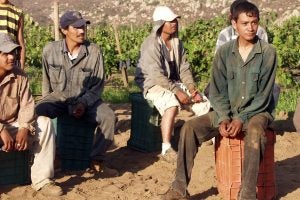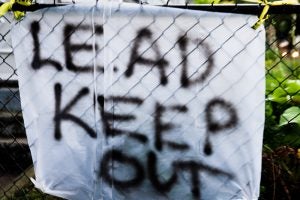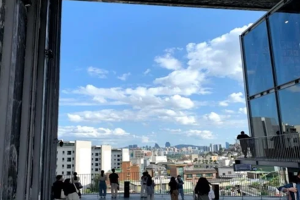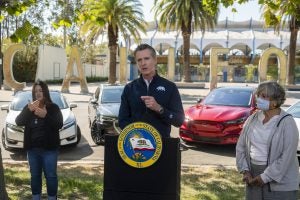 January 15, 2021
by Sara Zaat
Air
Chemicals
Climate change
International
January 15, 2021
by Sara Zaat
Air
Chemicals
Climate change
International
Hydrofluorocarbons, an alternative to the ozone-depleting substances that damage the Earth’s protective ozone layer, are potent greenhouse gases that exacerbate climate change. These chemicals are scheduled for reduction under international law: the Kigali Amendment to the Montreal Protocol on Substances that Deplete the Ozone Layer. Will the United States join the majority of U.N. Member States in committing to phasing down its hydrofluorocarbon production and consumption in accordance with international law in a Biden administration?
 January 12, 2021
by Shannon Twiss
Agriculture
Climate change
Regulations
January 12, 2021
by Shannon Twiss
Agriculture
Climate change
Regulations
Policymakers should take a closer look at the way the effects of climate change are taking their toll on our most essential workers in agriculture, manufacturing, and emergency response.
 December 1, 2020
by Alexander Collingsworth
State and Local
Water
December 1, 2020
by Alexander Collingsworth
State and Local
Water
Residents of Flint, Michigan will likely receive some compensation soon for the poisoning of their drinking water. In August, the state of Michigan settled claims against it and Michigan officials, including former Governor Rick Snyder, for $600 million. What are the implications of the Michigan Supreme Court decision that opened the way for this settlement? And how much money are individual residents likely to see?
 November 9, 2020
by Shamila Kara
Chemicals
Litigation
Oil and Gas
November 9, 2020
by Shamila Kara
Chemicals
Litigation
Oil and Gas
Brownfields are formed when a property’s use or development has been curtailed by the presence of environmental contaminants. There are over 450,000 Brownfields in the United States today and these sites are home to major environmental pollutants. How does bankruptcy contribute to this issue and why should some states and communities be more concerned than others?
 November 9, 2020
by Hunter Johnston
Air
Chemicals
Regulations
November 9, 2020
by Hunter Johnston
Air
Chemicals
Regulations
On October 1, 2020, the Environmental Protection Agency (EPA) finalized text for a final rule that proposed to change the way facilities that emit hazardous air pollutants (HAPs) are regulated under the Clean Air Act.[i] The rule, titled Reclassification of Major Sources as Area Sources Under Section 112 of the Clean Air Act, purports to implement a plain language interpretation of Section 112 of the Clean Air Act.[ii] In practical effect, the final rule provides that a “major source” can reclassify to “area source” status at any time after reducing its actual or potential hazardous air pollutants (HAP) emissions to below the major source threshold of 10 tons per year (tpy) of any single HAP and 25 tpy of any combination of HAPs.[iii] Additionally, the rule amends Clean Air Act requirements regarding compliance dates, notification, and record keeping.[iv]
 November 8, 2020
by Samuel X. Frank
Regulations
Sustainability
November 8, 2020
by Samuel X. Frank
Regulations
Sustainability
The CEQ’s new regulations seek to make NEPA more efficient for agencies. Could transforming NEPA into a regulatory commission solve its efficiency problems while protecting, and building upon, its effectiveness?
 October 25, 2020
by Hyunjin Kim
Air
Chemicals
Climate change
Fossil Fuels
International
October 25, 2020
by Hyunjin Kim
Air
Chemicals
Climate change
Fossil Fuels
International
"Normal was a crisis." When we say we want to "go back to normal," do we really mean the world exactly as we left it? Or, could we use COVID as a means of building something better than what we had, perhaps greener?
 October 20, 2020
by Camden Douglas
Air
Climate change
Fossil Fuels
Regulations
State and Local
October 20, 2020
by Camden Douglas
Air
Climate change
Fossil Fuels
Regulations
State and Local
On September 23, 2020, California Governor Gavin Newson issued an executive order[1] that is expected to reduce the impact of climate change by drastically transforming the State's transportation industry. California experiences many unique climate change-related problems. For instance, as a result of climate change, the duration of California's wildfire season has more than doubled since 1980.[2] Indeed, this year, California is experiencing a record-breaking burn,[3] with wildfires scorching millions of acres of land.[4] The executive order, in an attempt to attenuate some of these climate change-related impacts on the State, requires all new passenger vehicles sold in California to be zero-emission by 2035, effectively banning the sale of new gasoline-powered vehicles in just fifteen years.[5]
 October 13, 2020
by Volodymyr Ponomarov
Energy
International
Natural Resources
Renewable Energy
October 13, 2020
by Volodymyr Ponomarov
Energy
International
Natural Resources
Renewable Energy
The European Green New Deal is an environmental plan aimed at making Europe carbon-neutral by 2050.[1] In order to achieve this ambitious goal, the European Union (“EU”) initiated the revision of a number of international agreements. Among one of those agreements is the Energy Charter Treaty (“ECT”). In July and September, 2020, the European Commission and EU Member States had two rounds of negotiations at the Energy Charter Conference dedicated to the modernization of the ECT.[2] The call for the ECT’s reform was, among other things, prompted by the ECT’s purported “serious threat to Europe’s climate neutrality target and more broadly to the implementation of the Paris Agreement.”[3]
The ECT’s modernization is important because this is the first targeted attempt to reshape the unique, legally-binding, energy-related multilateral treaty and marks a step towards compliance with the Paris Climate Accord. Additionally, modernization of the ECT provisions is relevant to U.S. companies investing in both the renewable and fossil fuel energy sectors of the ECT Member States. At this point, it is unclear how the two rounds of negotiations went and whether the actual changes are coming in the nearest future. The third round of negotiations is scheduled to take place in December 2020. This post will take a closer look at the ECT’s history, goals, and environmental standards. Furthermore, this post will address novel critiques as to its incompatibility with the Paris Climate Accord.
 August 20, 2020
by Edith Brown Weiss
Online Supplemental Article
Sustainability
August 20, 2020
by Edith Brown Weiss
Online Supplemental Article
Sustainability
By Edith Brown Weiss, Francis Cabell Brown Professor of International Law










